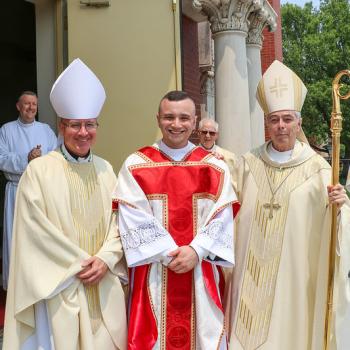Introduction
In a famous 2006 essay in the London Review of Books, foreign policy scholars John Mearsheimer and Stephen Walt charged that an "Israel Lobby," presumably dominated by American Jews, was skewing American foreign policy "far from what the national interest would suggest." Later that same year, Walter Russell Mead of the Council on Foreign Relations counter-charged in Foreign Affairs that American support for Israeli expansionism should not be blamed on Jews but rather "the dynamics of U.S. religion," especially the Christian Zionism of evangelicals. Shortly after this widely-read exchange, James Skillen argued that what makes Christian Zionism so attractive to so many is its "civil-religious faith that God has chosen America to be the kind of new Israel that helps shepherd the survival of the Jewish state so that Christ's return will come about as prophesied." Therefore Christian Zionism, he concluded, "is a specific kind of political theology arising from within the American civil religion."
In the many books and articles that have appeared in recent years, Christian Zionism is often said to be primarily indebted to premillenialist dispensationalism, a 19th-century theological system developed by Irish Anglican priest-turned Plymouth Brethren pastor John Nelson Darby and then broadcast by Cyrus I. Scofield in the notes to his edition of the King James Bible (1909)—a system that was then used as the foundation for the Christian Zionisms of Hal Lindsey (author of The Late Great Planet Earth [1970]), Jerry Falwell, Tim LaHaye (co-author of the best-selling Left Behind series), and mega-church pastor John Hagee.
Dispensationalism usually insists on two separate covenants—one for earthly Israel and another for the church. No biblical promise for the one is to be understood as also referring to the other. Using the seventy weeks of Daniel's prophecy (Dan. 9), Darby charged that Jesus' second coming was supposed to occur seven years after his resurrection. But because the Jews rejected Jesus' messianic claims, God suspended the prophetic timetable for Israel at the end of the 69th week, and permitted the "church age," which was completely unrelated to Israel's prophetic destiny. Only after the church is raptured before the Tribulation will Israel's prophetic timetable resume, and Christ eventually return. Critics of this sort of Zionism say that its worst tendencies are to ignore the legitimate needs of Palestinians, to support Israel right or wrong and even think Israel can do no wrong, to see the Middle East conflict solely in religious terms, and to ignore indigenous Christians in the region—both Jewish and Arab.
In this three-part series I will sketch the history of modern Christian Zionism (Part I) and then review its theology of land (Part II). Then I will turn to the question of the land most in dispute, the West Bank, and consider the question of whether its "occupation" is illegal. Finally, I will ask whether Christians and Jews—Zionist or not—should support the modern state of Israel (Part III).
A Brief Historical Overview
In the late 16th and then in the 17th century, both members of the Church of England and dissenters became fascinated by the role of Jews in what they thought the Bible to be saying about the times of the End. Many Puritan writers looked for a return of Jews to the land of Israel. In Paradise Regained, John Milton wrote,
Yet He at length, time to himself best known,
Remembering Abraham, by some wondrous call
May bring them back, repentant and sincere,
And at their passing cleave the Assyrian flood,
While to their native land with joy they haste,
As the Red Sea and Jordan once he cleft,
When to the Promised Land their fathers passed.
To his due time and providence I leave them.
Sir Isaac Newton devoted three volumes to biblical prophecies, and in his third volume deliberated twice on the future restoration of diaspora Jews to the land of Israel. In his book on Daniel and Revelation, Newton said Jews had a duty to return and rebuild Jerusalem, and speculated that some other kingdom friendly to them might help them. Significantly, these were both Puritans and Anglicans, and none were pre-millennialists.
Increase Mather and other American Puritans in the 17th century read, as had their English colleagues, the biblical prophets' forecasts of a return to the land from the four corners of the earth, and predicted that Israel would be restored politically and spiritually before the millennium. Cotton Mather spent his life yearning for the restoration of the Jews to the land of Israel.
Eighteenth-century evangelicals inherited from their Puritan forbears an eschatological interest in the land and people of Israel. So when Jonathan Edwards (1703–58) defended Judaism against the deists, he was drawing out lines started by others. For the first time since Marcion (d. c. 160), in the 18th century Jews were regarded as religiously unrelated to Christians. Deists launched the attack, charging that Judaism was essentially pagan, unspiritual, unnecessary to Christianity, and in fact the source of all that was wrong with traditional Christianity. Edwards argued strenuously against the deist severance of the religious link between Jews and Christians by positing one covenant binding the two religions. The Old Testament and New Testament covenants, he asserted, are different but integrally related modes of a single plan of redemption. The Old Testament covenant was the "cortex" or "shell" that "envelops" the "medulla" of the gospel or covenant of grace.




